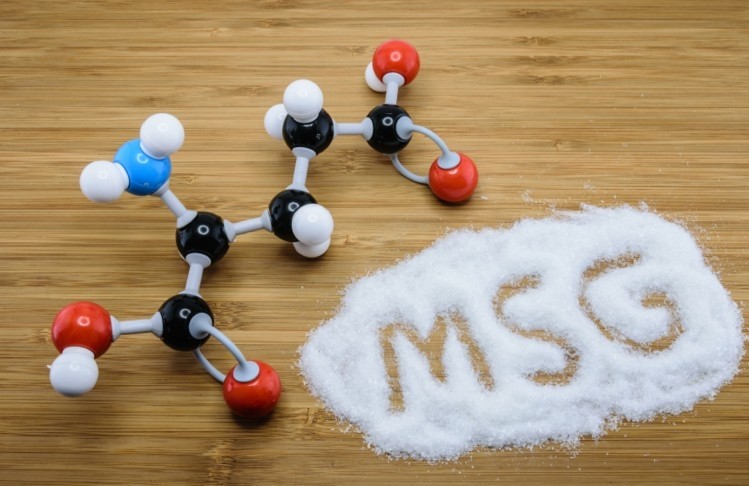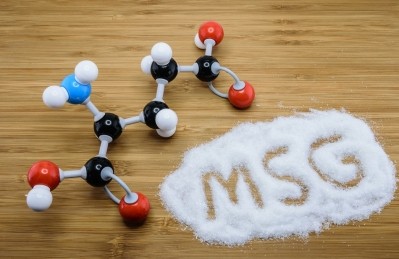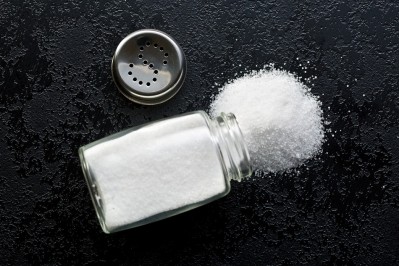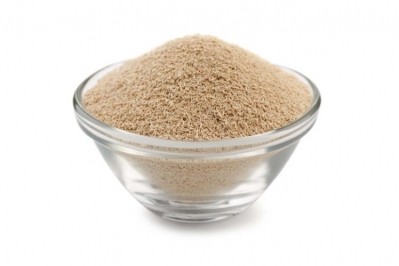Ajinomoto defends MSG as nonprofit petitions FDA to rescind its GRAS status

Added to many foods as a flavor enhancer, MSG is a highly concentrated glutamate salt (100% sodium glutamate) produced on a commercial scale via the bacterial fermentation of sugars.
Approved as a food additive in Europe (E621), MSG is considered GRAS by the US Food and Drug Administration (FDA) and other scientific agencies around the world, but remains on the ‘unacceptable ingredients’ list at Whole Foods, Trader Joe’s, Kroger (simple Truth), H.E.B (Select Ingredients), Aldi (Simply Nature), and several other high profile retailers.
A long-time critic of MSG and author of a book entitled, ‘It Wasn't Alzheimer's. It Was MSG,’ Adrienne Samuels, Ph.D., director of the Truth in Labeling Campaign (a nonprofit set up in 1994 by Samuels and her husband Jack, who she claims had ‘an extreme sensitivity’ to MSG) alleges in a new petition that the FDA and other government food safety agencies have “turned a blind eye to relevant research” that raises concerns about MSG, and relied on “badly flawed industry-sponsored studies” to determine its safety.
“They [studies reviewed by the FDA] are generally methodologically inadequate, statistically unsound, and/or irrelevant to the safety/toxicity of MSG.”
She added: “Having MSG called GRAS is inexcusable. MSG is a neurotoxic, brain damaging ingredient, and the FDA is putting it in the same category as baking soda.
“It is well documented that L-glutamate is implicated in kidney and liver disorders, neurodegenerative disease, and more,” alleged Samuels, who argued that there is “a significant difference between the glutamate found in unprocessed protein-containing foods, which is vital for normal body function, and that which is manmade, such as the glutamate in MSG.”
Her petition also argues that there is a difference between MSG produced via bacterial fermentation vs the more traditional method of extraction from a source protein, although it doesn’t provide any evidence of this.
Ajinomoto: ‘There is no justification for the assertion that glutamate is differentially metabolized based on source’
Tia Rains, PhD, VP customer engagement & strategic development at Ajinomoto Health & Nutrition North America, a leading manufacturer of MSG, told FoodNavigator-USA that this assertion was false: “MSG is comprised of its molecular components: C5H8NO4Na-H2O. This is true whether it is derived from extraction, fermentation or inherent in foods.
“This is no different than H2O or CO2 or any other compound; the molecular components define what the compound is, not the method by which it is produced. In fact, production by fermentation offers the highest purity MSG."
As for the way our bodies handle glutamate from, say, tomatoes vs MSG, she said, "Glutamate that is consumed from MSG is immediately separated into sodium and glutamate within the mouth, and both substances mix with other dietary sources of each substance that are digested and metabolized in the same way.
“There is no justification for the assertion that glutamate is differentially metabolized based on source.”
It is also important, claimed Rains, to distinguish between glutamate that the human body makes on its own (which plays an important role as a neurotransmitter) and dietary glutamate that most people consume in some form daily (which, she argued, does not enter the brain).
She also noted that a safety assessment of MSG in the 1990s conducted for the FDA by the Federation of American Societies for Experimental Biology (see box below) “happened long after” MSG started to be produced using bacterial fermentation and did not find serious safety risks.
Acceptable daily intakes
Asked about Samuels’ claim that daily intakes of MSG are not safe, Rains said: “There is no evidence that daily intakes of MSG exceed what is safe for consumption. In fact, an average adult consumes approximately 13 grams of glutamate each day from protein-containing foods, while intake of added MSG is estimated at around 0.55 grams per day.”
Quizzed over the claim that government agencies have been overly reliant on industry-funded research when assessing the safety of MSG, and that researchers have used inappropriate controls in studies (eg. comparing products containing MSG with products containing aspartame, which Samuels alleges prompts “virtually identical reactions”), Rains argued that “industry-funded research and research supported by other sources have shown the same results.
“In fact, one of the strongest studies to evaluate the post-ingestive effects of MSG was by Geha et al. 2000, a multi-center, multiphase double blind, placebo-controlled crossover study which evaluated the impact of a standard beverage (without aspartame) with and without MSG. This study concluded, ‘neither persistent nor serious effects from MSG ingestion are observed, and the responses were not consistent on retesting.’”
Misconceptions about MSG “stem from unreliable anecdotes published in the 1960s and studies in animals or poorly designed human studies,” argued Rains, who pointed to a 2018 scientific review which concluded that, “the findings from non-human primate and human studies provide evidence that MSG in the food supply presents no neurotoxicity or neurodevelopmental risks.”
'We continue to see consistent growth in the MSG market in the US'
So is MSG still gaining traction in the market, or have consumer concerns – and some retailers' prohibitions - dampened consumer enthusiasm for the ingredient?
According to Rains, “We continue to see consistent growth in the MSG market in the US as American consumers understand the xenophobic underpinnings that resulted in the negative perception of MSG over 50 years ago [Ajinomoto recently teamed up with high-profile chefs on a #RedefineCRS ('Chinese restaurant syndrome') campaign].”
“Additionally, as the National Academies of Science, Engineering and Medicine noted in 2019, MSG can be a tool to reduce sodium in the diet where currently 90% of Americans exceed recommended intakes."
What does the FDA say about MSG?
According to the FDA website, over the years, the agency has “received reports of symptoms such as headache and nausea after eating foods containing MSG. However, we were never able to confirm that the MSG caused the reported effects.
“These adverse event reports helped trigger FDA to ask the independent scientific group Federation of American Societies for Experimental Biology (FASEB) to examine the safety of MSG in the 1990s. FASEB’s report concluded that MSG is safe.”
It adds: “The FASEB report identified some short-term, transient, and generally mild symptoms, such as headache, numbness, flushing, tingling, palpitations, and drowsiness that may occur in some sensitive individuals who consume 3 grams or more of MSG without food.
“However, a typical serving of a food with added MSG contains less than 0.5 grams of MSG. Consuming more than 3 grams of MSG without food at one time is unlikely.”( Read more HERE.)
What do other government food safety agencies say?
In 2003, Food Standards Australia New Zealand (FSANZ) issued a technical report on MSG that concluded:
“There is no convincing evidence that MSG is a significant factor in causing systemic reactions resulting in severe illness or mortality. The studies conducted to date on CRS ['Chinese Restaurant Syndrome'] have largely failed to demonstrate a causal association with MSG. Symptoms resembling those of CRS may be provoked in a clinical setting in small numbers of individuals by the administration of large doses of MSG without food.
“However, such affects are neither persistent nor serious and are likely to be attenuated when MSG is consumed with food. In terms of more serious adverse effects such as the triggering of bronchospasm in asthmatic individuals, the evidence does not indicate that MSG is a significant trigger factor.”
EFSA: Some population groups exceed ADIs
In 2017, the European Food Safety Authority’s (EFSA’s) Panel on Food Additives and Nutrient Sources added to Food (ANS) delivered a scientific opinion re-evaluating the safety of MSG (E621) and other glutamic acid–glutamates (E 620–625), which found that they “did not raise concern with regard to genotoxicity.”
The panel then came up with an acceptable daily intake (ADI) of 30 mg/kg bodyweight per day, expressed as glutamic acid, for glutamic acid and glutamates (E 620–625), but “noted that the exposure to glutamic acid-glutamates (E 620–625) exceeded not only the proposed ADI, but also doses associated with adverse effects in humans for some population groups. Therefore, the Panel recommended that the European Commission considers revising the maximum permitted levels, in particular, in food categories contributing the most to the overall exposure to glutamic acid and its salts.”
It also recommended that the European Commission “considers revising the current limits for toxic elements arsenic and/or lead in the EU specifications for E 620–625 in order to ensure that they will not be a significant source of exposure to those toxic elements in food.”
Two years later, in 2019, EFSA issued a call for “more detailed data on actual current uses and use levels of E 620–625, and their technological justification.”


















